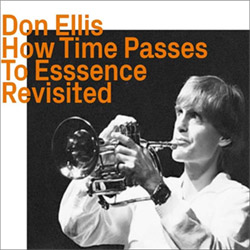
Before his experimental, culturally absorbing large band work in the late 60s and 70s, trumpeter Don Ellis released these two excellent quartet albums featuring his own compositions, particularly the side-long work "Improvisational Suite 1", in bands with Jaki Byard, Ron Carter & Charlie Persip (How Time Passes) and with Paul Bley, Gary Peacock and either Gene Stone or Nick Martinis (Essence).
In Stock
Quantity in Basket: None
Log In to use our Wish List
Shipping Weight: 2.00 units
EU & UK Customers:
Discogs.com can handle your VAT payments
So please order through Discogs
Sample The Album:
Don Ellis-trumpet
Jaki Byard-piano, alto saxophone
Ron Carter-double bass
Charlie Persip-drums
Paul Bley-piano
Gary Peacock-double, bass
Gene Stone-drums
Nick Martinis-drums
Click an artist name above to see in-stock items for that artist.
UPC: 752156117520
Label: ezz-thetics by Hat Hut Records Ltd
Catalog ID: ezz-thetics 1175
Squidco Product Code: 35226
Format: CD
Condition: New
Released: 2024
Country: Switzerland
Packaging: Cardboard Gatefold
Tracks 1 to 5 recorded at Nola Penthouse Sound Studios, in New York, on October 4th and 5th, 1960.
Tracks 6 to 10 recorded at Pacific Jazz Studios, in Los Angeles, California, on July 15th, 16th and 17th, 1962.
Time Passes originally released in 1961 as a vinyl LP on the Candid label with catalog code CJM 8004.
Essence originally released in 1962 as a vinyl LP on the Pacific Jazz label with catalog code PJ-55.
"Historically, jazz magazines have courted controversy. Back in the day, scurrilously opiniated articles sparked a chain reaction of letters to the editor, rebuttals, and collateral arguments, raising the profile of the publication and the author. Today, the backlash spreads like wildfire on social media, generating clicks. There are a few jazz critics who have excelled at this brand of arson, but the fires they set are usually dowsed or smothered in short order. Down Beat's John Tynan was an exception, his 1961 "anti-jazz" indictment against John Coltrane and Eric Dolphy remaining a perennially referenced text, an accelerant of the animosity of some white critics against the emergent Black music, Leonard Feather prominent among them.
Published two months prior to his infamous article, Tynan created a lesser known, tangentially related bruhaha with his review of Don Ellis' ...How Time Passes.... Because of its experimentation, Tynan declined to rate the album, asking: "Is it jazz in the established sense? Sometimes yes; sometimes, not at all." Tynan also goes to lengths to lump Ellis and Coltrane together as artists at odds with the status quo. However, he places them at opposite ends of a contrived spectrum, citing Coltrane's approach as "fully subjective, personal" while Ellis' "applies a group discipline" - implicitly, the passion-driven Negro and the intelligent, organized white. That Ellis' quartet was rounded out by Jaki Byard, Ron Carter, and Charlie (later Charli) Persip, made the construct even more cringe-inducing.
Tynan's proved to be the minority view of the press. ...How Time Passes... garnered kudos from such diverse sources as High Fidelity, who assessed the album to have the "musicianship and the imagination to hold one's attention," and United Press International, who proclaimed it to be "one of the most interesting records of the year." Hi-Fi/Stereo proclaimed it to be the best jazz album of the month in its July 1961 issue, with Pete Welding praising the playing as "wholly effective - delightfully pulsant [sic], lyrical, and surprisingly gentle." Compare the latter comment to Tynan's claim that the music on the side-long "Improvisational Suite No. 1" "becomes chaotic and incomprehensible" at times and that "the bass is scratched rather than bowed, the drums rak-a-tak like intermittent rifle fire in the distance, as the horns squawk and yowl sundry animal noises."
Tynan's suggestion that recordings like ...How Times Passes... were perhaps "a manifestation of a deteriorating culture" encapsulated the perspective that placed him on the wrong side of history concerning jazz experimentalism in the main, and Ellis' brand in particular, which was far from contagious. Unlike Coltrane, whose impact on the evolution of jazz was immediate, widespread, and lasting, Ellis' use of tone rows and other aspects of serialism on the Nat Hentoff-produced album - a continuation of work initially mentored by John Benson Brooks - was slow to spread among other composers. It is still largely overlooked in commentary about Ellis, as early small group albums like ...How Time Passes... and Essence are dwarfed by his later, legacy-defining innovations in orchestration, time signatures, and use of non-Western materials, with his surprisingly popular juggernaut Orchestra.
...How Time Passes... is comparable to otherwise dissimilar breakthrough recordings like Roscoe Mitchell's Sound, as both Ellis and Mitchell demonstrated fluency in the most recent iterations of jazz experimentalism before venturing into previously uncharted territory. Just as Mitchell's "Ornette" reflected a distillation of Coleman's vocabulary, Ellis' familiarity with Third Stream-associated composers like Charles Mingus and George Russell is abundantly evident. On the title piece, Ellis deftly crafts the type of complex, serpentine lines associated with Russell (in whose sextet he would play in 1961-2); the tempo shifts are similar to those employed by Mingus, even though it was Karlheinz Stockhausen's usage in his composition of the same name that originally inspired Ellis.
Although modal composition is now thoroughly embedded in standard jazz practice, it had yet to be widely employed when ...How Time Passes... was recorded in October 1960, a month before the release of Olé Coltrane. Instead of using a mode as the basis for a blowing vehicle, Ellis sculpted the lovely, sensuous ballad, "Sallie." Although he eventually became renowned for showstopping bravura solos, Ellis' use of a mute here is notable for its initial tender lyricism and gradually increasing intensity. Ellis was also one of the few composers then playing with the building blocks of Thelonious Monk's compositional language, "A Simplex One" revealing the understanding that Monk's music was simultaneously simple and complex.
"Radical" is a term thoroughly diluted through overuse in the discussion of experimental music; but it applies with full force to Ellis' side-long "Improvisational Suite #1." Its radicalism is not simply Ellis' use of a tone row as the kernel of the piece, but his almost immediate dispensation of Schoenbergian orthodoxy. Instead of explicating its inversion, retrograde, and retrograde-inversion, Ellis restates the row on its fourth note, moving the first three to the end. He then distributes the individual notes among trumpet, piano, and bass, resulting in single-note exchanges with percussion. A four-note chorale-like passage ensues, giving way to pointillistic, swinging, and "Boogie" sections that reshuffle the tone row and accommodate freer improvisational approaches. The latter features Byard on alto saxophone, the basis for comparisons with Coleman and Don Cherry. A Persip solo sets up the climax of the piece, which is capped off by the chorale-like passage. Replete with scratching, rak-a-tak, and sundry animal noises, "Improvisational Suite #1" is a signal work too few heard upon its initial release.
Whereas "Improvisational Suite #1" was envisioned as concert music, Ellis conceived Essence "along the lines of a set I might play in a club," though one would be hard pressed to name a Los Angeles nightspot in 1962 where Ellis could have presented this material for more than one night. While the album includes engaging, conventional readings of "Johnny Come Lately," "Angel Eyes," and "Lover," they are mixed among Ellis' originals that are as experimental as those on ...How Time Passes.... Richard B. Haddock, in his Down Beat review, cited "Slow Space" and "Irony" for "'arty' sounds rather like the music one often hears with abstract films." The rapid-fire "Ostinato," which Ellis composed in 1957 while a member of the US Seventh Army Jazz Ensemble II, stationed in Germany, is a study in martial precision. Performed as a trumpet-piano-bass trio, Carla Bley's "Donkey" (later renamed "Wrong Key Donkey") reinforces the idea that Ellis had recital hall aspirations.
Essence has the distinction of being Paul Bley and Gary Peacock's first session together. There is a palpable forward-leaning quality to their work in the ensembles as well as their solos, as they test the tensile strength of the standards and sharpen the edges of the originals, supported by the loose-limbed drumming of Gene Stone and Nick Martinis. However, it is Ellis' unerring ability to nail intricate, off-center lines with a penetrating brassiness that is the primary focal point of the album. Haddock likened this to "an improbable blend of Al Hirt and Don Cherry," leading him to conclude that "Ellis is both instrumental virtuoso and imaginative improviser." Whether it is his hard-charging take on "Johnny Come Lately" or his exploration of a circle of fourths on "Form," Ellis' musicianship never fails to impress.
...How Time Passes... and Essence were issued at a time when jazz history was being made practically on a monthly basis. There are a few reasons why they became submerged in the tsunami of groundbreaking albums released in the first years of the 1960s. For starters, Candid and Pacific Jazz simply did not have the market clout of Atlantic, Impulse, and other labels. Furthermore, Don Ellis' music differed significantly from that of the avatars of free jazz, occupying a space between contemporary jazz and mid-century chamber music. However, the times eventually caught up. More than sixty years after their initial release, these recordings were as prescient as they are brilliant."-Bill Shoemaker, from the liner notes

The Squid's Ear!
Artist Biographies
• Show Bio for Don Ellis "A talented trumpeter with a vivid musical imagination and the willingness to try new things, Don Ellis led some of the most colorful big bands of the 1965-75 period. After graduating from Boston University, Ellis played in the big bands of Ray McKinley, Charlie Barnet, and Maynard Ferguson (he was featured with the latter on "Three More Foxes"), recorded with Charles Mingus, and played with George Russell's sextet (at the same time as Eric Dolphy). Ellis led four quartet and trio sessions during 1960-1962 for Candid, New Jazz, and Pacific Jazz, mixing together bop, free jazz, and his interest in modern classical music. However it was in 1965 when he put together his first orchestra that he really started to make an impression in jazz. Ellis's big bands were distinguished by their unusual instrumentation (which in its early days had up to three bassists and three drummers including Ellis himself), the leader's desire to investigate unusual time changes (including 7/8, 9/8, and even 15/16), its occasionally wacky humor (highlighted by an excess of false endings), and an openness towards using rock rhythms and (in later years) electronics. Ellis invented the four-valve trumpet and utilized a ring modulator and all types of wild electronic devices by the late '60s. By 1971, his band consisted of an eight-piece brass section (including French horn and tuba), a four-piece woodwind section, a string quartet, and a two-drum rhythm section. A later unrecorded edition even added a vocal quartet. AutumnAmong Don Ellis's sidemen were Glenn Ferris, Tom Scott, John Klemmer, Sam Falzone, Frank Strozier, Dave MacKay, and the brilliant pianist (straight from Bulgaria) Milcho Leviev. The orchestra's most memorable recordings were Autumn, Live at the Fillmore, and Tears of Joy (all for Columbia). After suffering a mid-'70s heart attack, Ellis returned to live performing, playing the "superbone" and a later edition of his big band featured Art Pepper. Ellis's last recording was at the 1977 Montreux Jazz Festival, a year before his heart finally gave out."-Scott Yanow, All Music ^ Hide Bio for Don Ellis • Show Bio for Jaki Byard "John Arthur "Jaki" Byard, June 15, 1922 - February 11, 1999, was an American jazz multi-instrumentalist, composer, and arranger. Mainly a pianist, he also played tenor and alto saxophones, among several other instruments. He was known for his eclectic style, incorporating everything from ragtime and stride to free jazz. Byard played with trumpeter Maynard Ferguson in the late 1950s and early 1960s, and was a member of bands led by bassist Charles Mingus for several years, including on several studio and concert recordings. The first of his recordings as a leader was in 1960, but, despite being praised by critics, his albums and performances did not gain him much wider attention. In his 60-year career, Byard recorded at least 35 albums as leader, and more than 50 as a sideman. Byard's influence on the music comes from his combining of musical styles during performance, and his parallel career in teaching. From 1969 Byard was heavily involved in jazz education: he began teaching at the New England Conservatory of Music and went on to work at several other music institutions, as well as having private students. He continued performing and recording, mainly in solo and small group settings, but he also led two big bands - one made up of some of his students, and the other of professional musicians. His death, from a single gunshot while in his home, remains an unsolved mystery." ^ Hide Bio for Jaki Byard • Show Bio for Ron Carter "Ron Carter is among the most original, prolific, and influential bassists in jazz. He has recorded over 2200 albums, and has a Guinness world record to prove it! In Jazz: Over his 60 year career, he has recorded with so many of the jazz greats greats: Lena Horne, Bill Evans, B.B. King, Dexter Gordon, Wes Montgomery, Bobby Timmons, Eric Dolphy, Cannonball Adderley and Jaki Byard to name a few. From 1963 to 1968, he was a member of the acclaimed Miles Davis Quintet. In other genres: After leaving the quintet he embarked on a prolific 50-year free lance career that spanned vastly different music genres and continues to this day. He recorded with Aretha Franklin, appeared on the seminal hip-hop album Low End Theory with a Tribe Called Quest, wrote and recorded pieces for string quartets and Bach chorales for 2-8 basses and accompanied Danny Simmons on a spoken word album. As a leader: Carter spends at least half the year on worldwide tours with his various groups. The Ron Carter Trio, The Ron Carter quartet, the Ron Carter Nonet and Ron Carter’s Great Big Band. He has recorded multiple albums with his groups. As an author: Carter shares his expertise in the series of books he authored, where he explains his creative process and teaches bassists of all levels to improve their skills and develop their own unique sound. He also penned his autobiography “Finding the Right Notes” which is available in print and also as an audiobook read by the Maestro himself. As a teacher: Carter has lectured, conducted, and performed at clinics and master classes, instructing jazz ensembles and teaching the business of music at numerous universities. He was Artistic Director of the Thelonious Monk Institute of Jazz Studies while it was located in Boston and, after 18 years on the faculty of the Music Department of The City College of New York, he is now Distinguished Professor Emeritus, he currently teaches at Manhattan School of Music. In film scoring: In addition to scoring and arranging music for many films, including some projects for Public Broadcasting System, Carter composed music for A Gathering of Old Men, starring Lou Gosset Jr., The Passion of Beatrice directed by Bertrand Tavernier, and Blind Faith starring Courtney B. Vance. Film appearances: Most jazz documentaries feature the Maestro because of his indelible contribution to the genre. Ken Burns “Jazz”, “Birth of the Cool” about Miles Davis, "It Must be Schwing", the story of the Blue Note and many more. He also appeared as himself in HBO’s hit series “Treme” and was the bassist on soundtracks of Twin Peaks, Bird, and way too many others to mention. Education: Carter earned a bachelor of music degree from the Eastman School in Rochester and a master's degree in double bass from the Manhattan School of Music in New York City. He has also received five honorary doctorates, from the New England Conservatory of Music, Manhattan School of Music, University of Rochester, Juilliard and Berklee, and was the 2002 recipient of the prestigious Hutchinson Award from the Eastman School at the University of Rochester." ^ Hide Bio for Ron Carter • Show Bio for Charlie Persip "Charli Persip (born July 26, 1929) is an American jazz drummer. Born in Morristown, New Jersey, as Charles Lawrence Persip, and formerly known as Charlie Persip, he changed the spelling of his name to Charli in the early 1980s. Raised in Newark, New Jersey, Persip attended West Side High School, preferring it over Newark Arts High School because he wanted to join the former's football team. He later studied drums with Al Germansky in Newark. After playing with Tadd Dameron in 1953, he gained recognition as a jazz drummer as he toured and recorded with Dizzy Gillespie's big and small bands between 1953 and 1958. He then joined Harry "Sweets" Edison's quintet and later the Harry James Orchestra before forming his own group, the Jazz Statesmen, with Roland Alexander, Freddie Hubbard, and Ron Carter in 1960. Around this time, Persip also recorded with several other formidable jazz musicians, including Lee Morgan, Dinah Washington, Melba Liston, Kenny Dorham, Zoot Sims, Red Garland, Gil Evans, Don Ellis, Eric Dolphy, Rahsaan Roland Kirk, and Gene Ammons. Persip was also the drummer on the legendary "Eternal Triangle" recording, Sonny Side Up (Verve Records), featuring Sonny Rollins and Sonny Stitt. From 1960 to 1973 he toured as a drummer and conductor with Billy Eckstine. Along with his performing activities, Persip has earned a reputation as an educator. Since 1974, he has been instructor of drums and music for Jazzmobile, Inc. in New York City. He is currently (2008) Associate Professor at the New School for Jazz and Contemporary Music in Manhattan. Persip leads Supersound, his jazz big band that was started in the mid-1980s as Superband. Supersound’s first album was recorded on the Stash label, and was titled Charli Persip and Superband. The group’s second album, Superband II, and third album, No Dummies Allowed, were recorded on the Soul Note label. Their fourth album is Intrinsic Evolution." ^ Hide Bio for Charlie Persip • Show Bio for Paul Bley "Hyman Paul Bley, CM (November 10, 1932 - January 3, 2016) was a Canadian pianist known for his contributions to the free jazz movement of the 1960s as well as his innovations and influence on trio playing and his early live performance on the Moog and Arp audio synthesizers. Bley was a long-time resident of the United States. His music has been described by Ben Ratliff of the New York Times as "deeply original and aesthetically aggressive." Bley's prolific output includes influential recordings from the 1950s through to his solo piano records of the 2000s. Bley was born in Montreal, Quebec, on November 10, 1932. His adoptive parents were Betty Marcovitch, an immigrant from Romania, and Joe Bley, owner of an embroidery factory. However, in 1993 a relative from the New York branch of the Bley family walked into Sweet Basil in NYC and informed him that his father was actually his biological parent. At age five Bley studied violin, but at age seven he decided to switch to the piano. By eleven he received a junior diploma from the McGill Conservatory in Montreal. At thirteen he formed a band which played at summer resorts in Ste. Agathe, Quebec. As a teenager he played with touring American bands, including Al Cowan's Tramp Band. In 1949, when Bley was starting his senior year of high school, Oscar Peterson asked Bley to fulfill his contract at the Alberta Lounge in Montreal. The next year Bley left Montreal for New York City and Julliard. In the 1951, on a return trip to Montreal, Bley organized the Jazz Workshop with a group of Montreal musicians. In 1953 Bley invited the bebop alto saxophonist and composer Charlie Parker to the Jazz Workshop, where he played and recorded with him. When Bley returned to New York City he hired Jackie McLean, Al Levitt and Doug Watkins to play an extended gig at the Copa City on Long Island. In 1953 the Shaw Agency booked Bley and his trio to tour with Lester Young, billed as "Lester Young and the Paul Bley Trio" in ads. He also performed with tenor saxophonist Ben Webster at that time. He then conducted for bassist Charles Mingus on the Charles Mingus and His Orchestra album. Additionally, in 1953, Mingus produced the Introducing Paul Bley album for his label, Debut Records with Mingus on bass and drummer Art Blakey . (In 1960 Bley recorded again with the Charles Mingus Group.) In 1954 Bley received a call from Chet Baker inviting him to play opposite Baker's quintet at Jazz City in Hollywood, California for the month of March. This was followed by a tour with singer Dakota Staton. Down Beat Magazine interviewed Bley for its July 13, 1955 issue. The prescient title of the article read, "PAUL BLEY, Jazz Is Just About Ready For Another Revolution." The article, reprinted in Down Beat's 50th Anniversary edition, quoted Bley as saying, "I'd like to write longer forms, I'd like to write music without a chordal center." Bley's trio with Hal Gaylor and Lennie McBrowne toured across the US in 1956, including a club in Juarez. Mexico. The tour culminated with an invitation to play a 1956 New Year's Eve gig at Lucile Ball and Desi Arnez's home in Palm Springs. During the evening, Bley collapsed on the bandstand with a bleeding ulcer and Lucy immediately took him to the Palm Springs hospital where she proceeded to pay for all of his medical care. Bley, who had met Karen Borg while she was working as a cigarette girl at Birdland in NYC, married her after she came out to meet him in Los Angeles, where she became Carla Bley. In 1957 Bley stayed in Los Angeles where he had the house band at the Hillcrest Club. By 1958 the original band, with vibe player, Dave Pike, evolved into a quintet with Bley hiring young avant garde musicians trumpet player Don Cherry, alto saxophonist Ornette Coleman, bassist Charlie Haden and drummer Billy Higgins. In the early 1960s Bley was part of "The Jimmy Giuffre 3," with Giuffre on reeds, and Steve Swallow on bass. Its repertoire included compositions by Giuffre, Bley and his now ex-wife, composer Carla Bley. The group's music moved towards chamber jazz and free jazz. The 1961 European tour of The Giuffre 3 shocked a public expecting Bebop, however the many recordings released from this tour have proven to be classics of free jazz. During the same period, Bley was touring and recording with tenor saxophonist Sonny Rollins, which culminated with the RCA Victor album Sonny Meets Hawk! with tenor saxophonist Coleman Hawkins. Bley's solo on "All The Things You Are" from this album has been called "the shot heard around the world" by Pat Metheny. In 1964 Bley was instrumental in the formation of the Jazz Composers Guild, a co-operative organization which brought together many free jazz musicians in New York: Roswell Rudd, Cecil Taylor, Archie Shepp, Carla Bley, Michael Mantler, Sun Ra, and others. The guild organized weekly concerts and created a forum for the "October Revolution" of 1964. In the late 1960s, Bley pioneered the use of the Arp and Moog synthesizers, performing live before an audience for the first time at Philharmonic Hall in New York City on December 26, 1969. This "Bley-Peacock Synthesizer Show" performance, a group with singer/composer Annette Peacock, who had written much of his personal repertoire since 1964, was followed by her playing on the recordings Dual Unity (credited to "Annette & Paul Bley") and Improvisie. The latter was a French release of two extended improvisational tracks with Bley on synthesizers, Peacock's voice and keyboards, and percussion by Dutch free jazz drummer Han Bennink, who had also appeared on part of Dual Unity. [biography continues...]" ^ Hide Bio for Paul Bley • Show Bio for Gary Peacock "Gary Peacock (born May 12, 1935, in Burley, Idaho, United States) is an American jazz double-bassist. After military service in Germany, in the early sixties he worked on the west coast with Barney Kessel, Bud Shank, Paul Bley and Art Pepper, then moved to New York. He worked there with Bley, the Bill Evans Trio (with Paul Motian), and Albert Ayler's trio with Sunny Murray. There were also some live dates with Miles Davis, as a temporary substitute for Ron Carter. Peacock spent time in Japan in the late 1960s, abandoning music temporarily and studying Zen philosophy. After returning to the United States in 1972, he studied Biology at the University of Washington in Seattle, and taught music theory at Cornish College of the Arts from 1976 to 1983. In 1983 he joined Keith Jarrett's "Standards Trio" with Jack DeJohnette (the three musicians had previously recorded Tales of Another in 1977 for ECM Records, under Peacock's leadership). Among the trio's albums are Standards, Vol. 1 and Standards, Vol. 2 and Standards Live. With the breakup of the "Standards Trio" in 2014, Peacock decided to continue his career as the leader of his own piano trio, with Marc Copland on piano and Joey Baron on drums. His 80th birthday year (2015) saw him touring worldwide with this trio to support their ECM release." ^ Hide Bio for Gary Peacock • Show Bio for Gene Stone Gene Stone is an American jazz drummer, known for the group Don Randi Trio, Prince Lasha Quintet, Gene Stone Quintet. ^ Hide Bio for Gene Stone • Show Bio for Nick Martinis "Nicholas Louis Martinis was born on August 13, 1931 in Philadelphia, PA. As a young aspiring drummer in Philly, Max Roach let Nick sit in with his band, and there he got to play with Charlie Parker. Nick went on tour with a band from Philly and settled in Los Angeles. Some of his favorite jobs include working with Frank Rosolino, The Lighthouse All Stars, and the Pete Jolly Trio. He played with Pete for over 30 years. Some of the jazz legends he worked with include Art Pepper, Conte Candoli, George Shearing, Chet Baker, Victor Feldman, Vince Guaraldi and many others. In 1980 we played in Normy Faye's show band on the Azure Seas cruise ship with Bob Corwin on piano, Lou Shapiro on sax and Tom Hill (Clarke-Hill) on bass. On the ship Nick was the master of his many funny poetic sayings. He continued to do that his whole life. When Nick was practicing at home, he had his drums set up between two, four foot speakers blasting out the classic bebop cuts. He would play the drum solos note for note transcribed by ear. That was fun for him. It kept him energized for his 92 years on this earth. Nick passed away on December 7, 2023." ^ Hide Bio for Nick Martinis
12/17/2025
Have a better biography or biography source? Please Contact Us so that we can update this biography.
12/17/2025
Have a better biography or biography source? Please Contact Us so that we can update this biography.
12/17/2025
Have a better biography or biography source? Please Contact Us so that we can update this biography.
12/17/2025
Have a better biography or biography source? Please Contact Us so that we can update this biography.
12/17/2025
Have a better biography or biography source? Please Contact Us so that we can update this biography.
12/17/2025
Have a better biography or biography source? Please Contact Us so that we can update this biography.
12/17/2025
Have a better biography or biography source? Please Contact Us so that we can update this biography.
12/17/2025
Have a better biography or biography source? Please Contact Us so that we can update this biography.
Track Listing:
1. ... How Time Passes 6:28
2. Sallie 4:37
3. A Simplex One 4:16
4. Waste 8:10
5. Improvisational Suite 1 22:17
6. Slow Space 4:35
7. Ostinato 7:33
8. Donkey 4:39
9. Form 10:14
10. Irony 5:14
Improvised Music
Jazz
Free Improvisation
Melodic and Lyrical Jazz
Jazz & Improvisation Based on Compositions
Quartet Recordings
Quintet Recordings
Jazz Reissues
Recent Releases and Best Sellers
Staff Picks & Recommended Items
New in Improvised Music
Hat Hut Masters Sale
Search for other titles on the label:
ezz-thetics by Hat Hut Records Ltd.

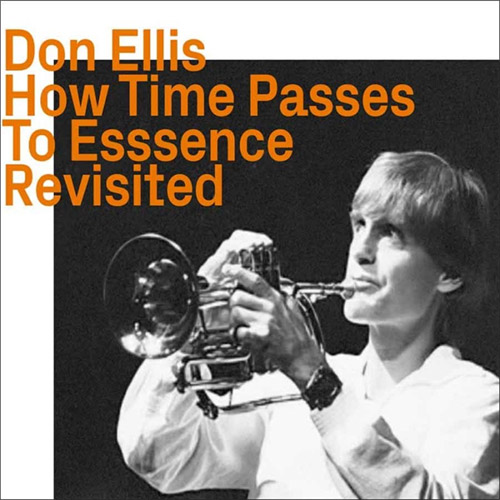
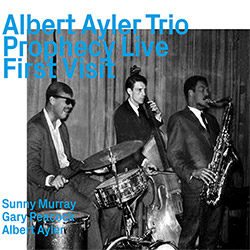

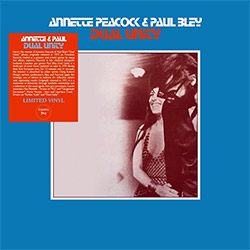


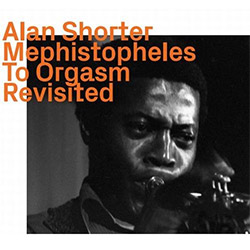

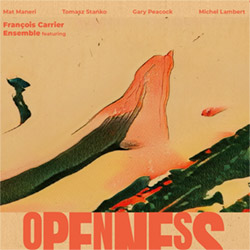
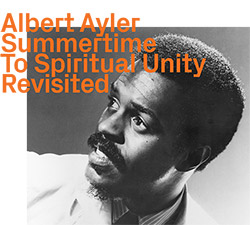
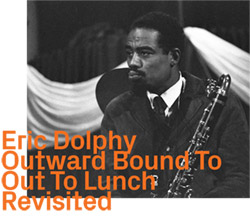



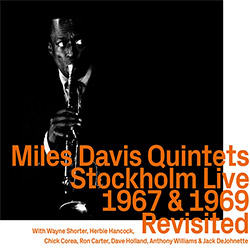

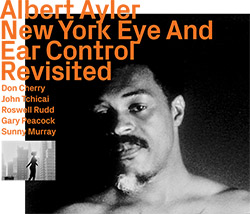

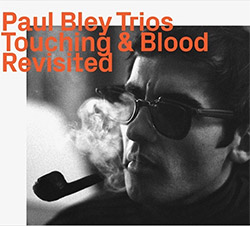

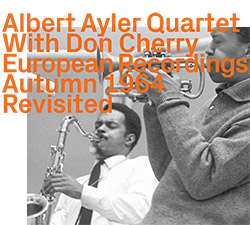

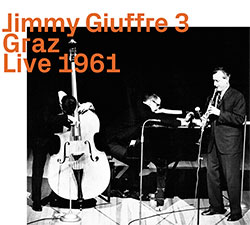

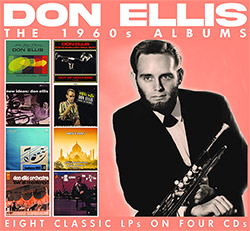
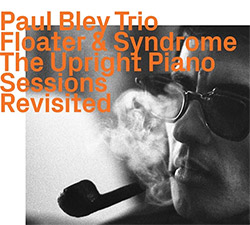


![HobbyHouse (Mia Dyberg / Axel Filip): HobbyHouse [CD + DOWNLOAD]](https://www.teuthida.com/productImages/misc4/36944.jpg)
![Mines, Kelsey / Erin Rogers: Scratching At The Surface [CD + DOWNLOAD]](https://www.teuthida.com/productImages/misc4/36945.jpg)
![Nebbia, Camila (feat/ Marilyn Crispell / Lesley Mok): A Reflection Distorts Over Water [CD + DOWNLOAD]](https://www.teuthida.com/productImages/misc4/36946.jpg)
![Vanheerentals, Adia: Taking Place [CD + DOWNLOAD]](https://www.teuthida.com/productImages/misc4/36947.jpg)
![Mines, Kelsey / Vinny Golia: Collusion and Collaboration [CD + DOWNLOAD]](https://www.teuthida.com/productImages/misc4/36948.jpg)
![Parkins, Zeena: Lament For The Maker [CD + DOWNLOAD]](https://www.teuthida.com/productImages/misc4/36949.jpg)
![Evans, Peter / Mike Pride : A Window, Basically [CD + DOWNLOAD]](https://www.teuthida.com/productImages/misc4/36950.jpg)



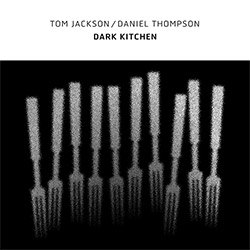
![Frey, Jurg : Composer, Alone [3 CDs]](https://www.teuthida.com/productImages/misc4/36927.jpg)
![Belorukov, Ilia / Alex Riva: Wrestling For Futility [CASSETTE w/DOWNLOAD]](https://www.teuthida.com/productImages/misc4/36994.jpg)
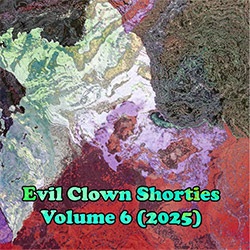
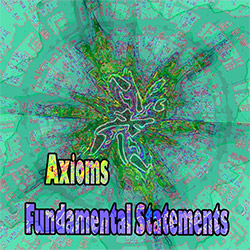










![Agnel, Sophie: Learning [VINYL]](https://www.teuthida.com/productImages/misc4/36841.jpg)

![Monaco, Amanda (w/ Michael Attias / Sean Conly / Satoshi Takeishi) : Deathblow [VINYL+ DOWNLOAD]](https://www.teuthida.com/productImages/misc4/36956.jpg)
![Frey, Jurg with ensemble]h[iatus: Je Laisse A La Nuit Son Poids D](https://www.teuthida.com/productImages/misc4/36988.jpg)
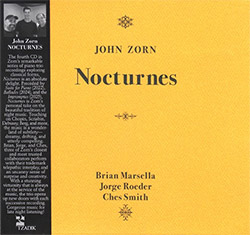
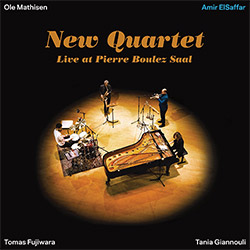
![ElSaffar, Amir / New Quartet : Live at Pierre Boulez Saal [VINYL]](https://www.teuthida.com/productImages/misc4/36830.jpg)

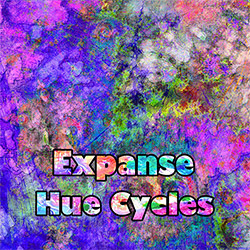
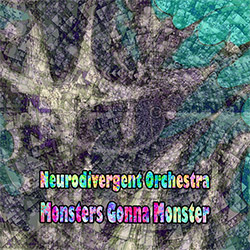


![Musicworks Magazine: #152 Fall 25 [MAGAZINE + CD]](https://www.teuthida.com/productImages/misc4/37004.jpg)





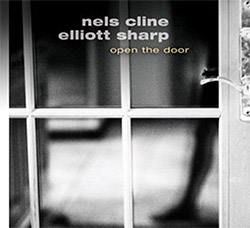
![[ahmed] (Thomas / Grip / Gerbal / Wright): Sama](https://www.teuthida.com/productImages/misc4/36976.jpg)

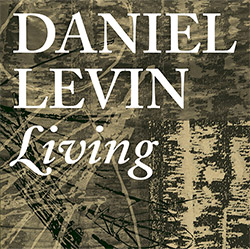
![Cleaver, Gerald / Brandon Lopez / Hprizm: In The Wilderness [COLOR VINYL]](https://www.teuthida.com/productImages/misc4/33060.jpg)
![McPhee, Joe : Defiant Jazz: a Joe McPhee Taster [VINYL]](https://www.teuthida.com/productImages/misc4/36859.jpg)
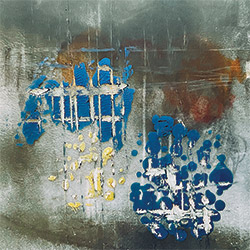
![Mateen, Sabir / Patrick Holmes / Federico Ughi : Survival Situation [LTD VINYL LP + DOWNLOAD]](https://www.teuthida.com/productImages/misc4/29891.jpg)
![Tucker, Dave / Pat Thomas / Thurston Moore / Mark Sanders: Educated Guess Vol. 1 [COLORED VINYL]](https://www.teuthida.com/productImages/misc4/30183.jpg)
![Sarian, Michael / Matthew Putman: A Lifeboat (Part I) [COLORED VINYL]](https://www.teuthida.com/productImages/misc4/30426.jpg)

![Genthon, Anouck / Lionel Marchetti: Suite Blanche [2 CDs]](https://www.teuthida.com/productImages/misc4/36642.jpg)
![Toeplitz, Kasper T.: Erosions Programmees [CD + BOOKLET]](https://www.teuthida.com/productImages/misc4/36639.jpg)
![Gate, The : Amost Live [CASSETTE + MAGAZINE]](https://www.teuthida.com/productImages/misc4/36836.jpg)






![A Magic Whistle: The Solar Cell [VINYL]](https://www.teuthida.com/productImages/misc4/36658.jpg)

![McGee, Hal: Columbus Expedition [Cassette w/ Download]](https://www.teuthida.com/productImages/misc4/36650.jpg)


![Jaeger, Kassel: Fernweh [VINYL 2 LPs]](https://www.teuthida.com/productImages/misc4/36541.jpg)





![+DOG+: The Light Of Our Lives [2 CDs]](https://www.teuthida.com/productImages/misc4/36009.jpg)


![Eternities: Rides Again [CASSETTE]](https://www.teuthida.com/productImages/misc4/36247.jpg)

![Lopez, Francisco: Untitled (2021-2022) [2 CDs]](https://www.teuthida.com/productImages/misc4/36438.jpg)





![Pisaro-Liu, Michael: Within (2) / Appearance (2) [2 CDs]](https://www.teuthida.com/productImages/misc4/36831.jpg)










![Musicworks Magazine: #151 Summer 25 [MAGAZINE + CD]](https://www.teuthida.com/productImages/misc4/36559.jpg)

![Brown, Dan / Dan Reynolds: Live At The Grange Hall [unauthorized][CASSETTE]](https://www.teuthida.com/productImages/misc4/36245.jpg)


![Zorn, John: The Song of Songs [CD + CD BOOK]](https://www.teuthida.com/productImages/misc4/36923.jpg)

![Coultrain: Mundus [COLORED VINYL]](https://www.teuthida.com/productImages/misc4/33056.jpg)
![Hprizm: Signs Remixed [COLORED VINYL]](https://www.teuthida.com/productImages/misc4/30635.jpg)
![Halls Of the Machine: All Tribal Dignitaries [CASSETTE w/ DOWNLOAD]](https://www.teuthida.com/productImages/misc4/36134.jpg)



![Koenjihyakkei: Live at Club Goodman [2 CDs]](https://www.teuthida.com/productImages/misc4/36111.jpg)

![Sorry For Laughing (G. Whitlow / M. Bates / Dave-Id / E. Ka-Spel): Rain Flowers [2 CDS]](https://www.teuthida.com/productImages/misc4/35985.jpg)

![Rolando, Tommaso / Andy Moor : Biscotti [CASSETTE w/ DOWNLOADS]](https://www.teuthida.com/productImages/misc4/36106.jpg)


![Electric Bird Noise / Derek Roddy: 8-10-22 [CD EP]](https://www.teuthida.com/productImages/misc4/35970.jpg)








![Elephant9 : Mythical River [VINYL]](https://www.teuthida.com/productImages/misc4/34624.jpg)



![Elephant9 with Terje Rypdal: Catching Fire [VINYL 2 LPs]](https://www.teuthida.com/productImages/misc4/35355.jpg)
![Coley, Byron: Dating Tips for Touring Bands [VINYL]](https://www.teuthida.com/productImages/misc4/17906.jpg)

![Lost Kisses: My Life is Sad & Funny [DVD]](https://www.teuthida.com/productImages/misc4/lostKissesDVD.jpg)